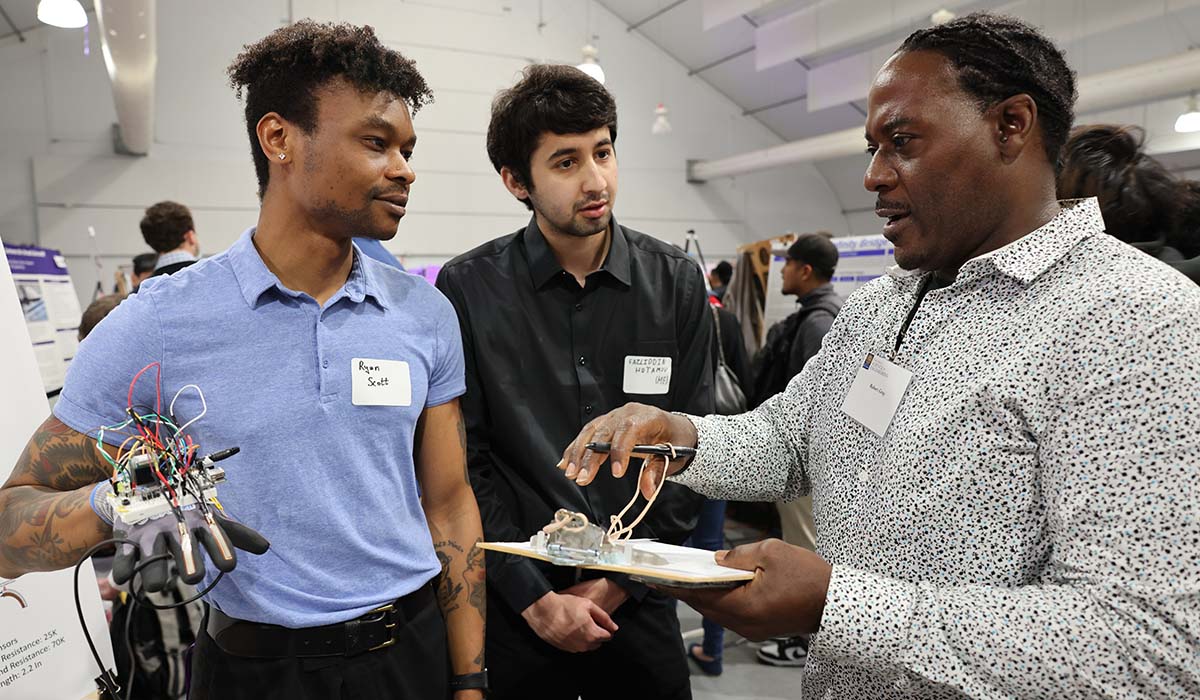A dozen outstanding graduates to be honored at 2024 Commencement
The student hood recipients will represent their academic colleges at the University’s 123rd graduation ceremony May 24
A dozen outstanding graduates will be honored during San Francisco State University’s 123rd Commencement ceremony, to be held at Oracle Park Friday, May 24. They will represent their more than 7,300 graduating peers in the Class of 2024.
As part of a longstanding tradition, each of the University’s six academic colleges selects an undergraduate and a graduate student to represent their classmates and wear their college’s academic hood during the ceremony. Additionally, two of the hood recipients, one undergraduate and one graduate student, will each deliver a Commencement address.
More details about the ceremony are available on the Commencement website.
Graduate Speaker
Genesis Sorrick
M.A., Philosophy
College of Liberal & Creative Arts
In September 2020, amidst the chaos of COVID-19, the eerie orange sky from raging wildfires and the protests against police brutality, Genesis Sorrick gave birth to her first child. Bringing a human into the world during this time was incredibly daunting. Sorrick responded with her characteristic strength, integrity and clear-sighted optimism. Inspired to understand the world better and envision a brighter future for her daughter, she decided to return to college and complete her B.A. in Philosophy at SF State.
Later, during Sorrick’s first semester as a Philosophy grad student at SF State, she began to experience excruciating pain and debilitating neurological symptoms. Nevertheless, she refused to let desperation consume her. She channeled her energy into understanding her experience and found solace in her academic studies.
She excelled in her courses, writing brilliant research papers, contributing insightfully to discussions and the life of the department, working conscientiously as a teaching assistant and maintaining a 4.0 grade-point average (GPA). Living with chronic pain led Sorrick to her M.A. thesis: a remarkably original, meticulously researched and highly persuasive account of medical gaslighting.
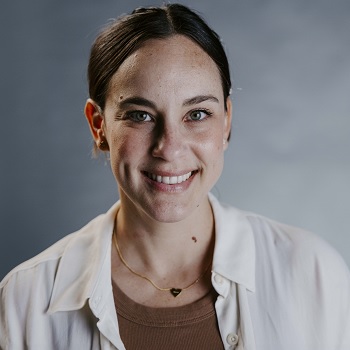
“Philosophy allowed me to ground myself in something other than my pain and focus on envisioning a better world for my daughters,” she said.
Sorrick’s journey has been shaped by additional obstacles. She is a Mexican-born woman and the first in her family to complete a college degree. Also, as a member of the LGBTQ+ community, she came out to friends and family in high school in a primarily right-wing, conservative town. Rather than dissuade her from pursuing her dreams, these experiences helped Sorrick develop the strength and tenacity she has needed to thrive at SF State, raise her children and live with chronic pain. She is a remarkable person, with a strong commitment to enacting positive change, both as a philosopher and a mother.
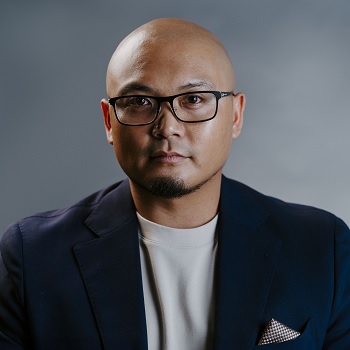
Undergraduate Speaker
Eddison Jintalan Contreras
B.A., Social Work
College of Health & Social Sciences
Eddison Jintalan Contreras’ social work journey was shaped by his own personal experiences of adversities and witnessing systemic inequities in different systems that he worked in. He is an Air Force veteran from a Filipino immigrant household and a member of the LGBTQ+ community. As a young airman, he worked under the “Don’t Ask, Don’t Tell” policy during Operation Iraqi Freedom. He felt the tension between embracing his true self and serving the country. While working at a large health care provider, Contreras saw all forms of oppression embedded within the health care system. All these fueled Contreras’ passion for social justice and inspired his educational goals.
During his tenure at SF State, Contreras contributed to both the campus and broader community. He assumed leadership roles within Social Work Advocates for Visions of Empowerment (SWAVE), was the SF State representative to the 23Strong Council — comprising 23 accredited social work programs across California — and was a founding member of the University chapter of the National Society of Leadership and Success. Notably engaged in policy advocacy, Contreras led legislative teams during the annual National Association of Social Workers’ legislative lobby days in Sacramento. He also supported policy initiatives addressing police brutality in the Antioch community.
He is doing a capstone project exploring the correlation between recidivism rates and the mental health diversion program at the Contra Costa Public Defender’s Office, where he serves as an intern.
Contreras is graduating with a Bachelor of Arts in Social Work magna cum laude. After graduation, Contreras aspires to pursue a Master of Social Work. His goal is to become a licensed social worker specializing in holistic methodologies for mental health care within marginalized communities. Additionally, he’ll continue engaging in macro-level and political social work initiatives contributing to systemic change and advocacy.
Undergraduate Hood Recipients
Jazz Monique Hudson
B.A., Africana Studies
College of Ethnic Studies
Jazz Monique Hudson, an Oakland native with over 15 years of expertise in youth development, educational arts, social justice and organizational change, epitomizes resilience and commitment to societal transformation. Despite the challenges she faced early in her life as a former foster youth and teenage mother, Hudson has overcome them and is now dedicating her life to being an advocate, artist and educator.
For example, Hudson was involved with organizations like the National Black Women’s Justice Institute, Black Youth Project 100 (where she was a founding member) and the Guardian Scholars Program. She was also a program director and founding member of the EMERGE Reentry Program, which focuses on supporting young women of color reintegrating into society after incarceration and academic pushout. Additionally, Hudson was a victim advocate for the San Francisco District Attorney and has had residencies, workshops and performances at universities like UC Berkeley and Princeton.
Serendipitously, her son’s 17th birthday coincides with the SF State 2024 Commencement, which Hudson says is a reminder of the strength and resilience found in the journey of motherhood. After graduation, she plans to pursue SF State’s Pre-Health Professions Post-Baccalaureate Certificate program, which will help her take the next step toward pursuing a career in health care as an osteopathic doctor specializing in allergy and immunology.
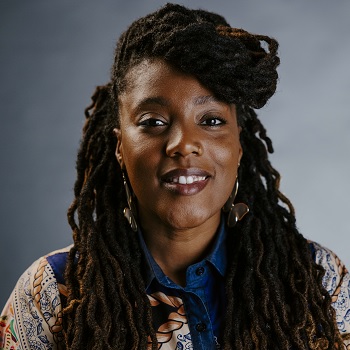
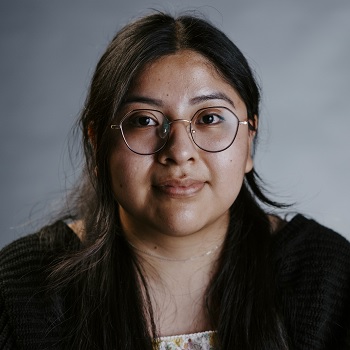
Devora Jimenez Domingo
B.S., Speech, Language and Hearing Sciences
Graduate College of Education
Devora Jimenez Domingo, originally from Guatemala, moved to the United States at a young age. Witnessing her Latinx community’s struggles due to language barriers, Jimenez Domingo has dedicated her work to assisting those with limited English proficiency, especially after recognizing the privilege she had being trilingual in English, Spanish and Mayan.
To support her community, Jimenez Domingo enrolled at SF State to pursue a degree in Speech, Language and Hearing Sciences with minors in Education and Special Education. During her time at SF State, she has actively contributed to the Gray Matter Lab, facilitating language therapy for Spanish speakers and promoting inclusivity in educational settings.
Jimenez Domingo also held leadership roles in various student clubs, advocating for cultural and linguistic diversity within the field of speech pathology.
Now preparing for graduate school to become a licensed speech pathologist, she aims to serve marginalized communities, particularly Black, Indigenous and People of Color, by ensuring their identities and linguistic backgrounds are acknowledged and respected in standardized testing and therapeutic practices.
Zen Lewis
B.A., International Relations/Political Science
College of Liberal & Creative Arts
In 2019, Zen Lewis’ journey to SF State began with her emigration from Serbia with the vision of achieving the American dream. As an 18-year-old in a new country with no financial support, she faced daunting challenges with housing and food insecurity, while attempting to find full-time employment with limited English fluency and work experience.
Today, Lewis is graduating with a double major in International Relations and Political Science with the highest honors, accompanied by Sigma Iota Rho and Pi Sigma Alpha societal honors. She represents the will and determination of young immigrant women who hail from war-torn nations to forge a new path, both for themselves and their home countries, so that those wars never occur again.
Lewis is a force of nature who speaks three languages, works full time in the wedding industry and serves as managing editor of the International Relations Journal. While earning the Migration and Refugee Studies certificate, she has demonstrated an exemplary work ethic, enthusiasm for global politics and resilience in the face of obstacles.
As president of the International Relations Student Association, Lewis has been a driving force, encouraging her fellow students and others in her community to get involved in domestic and international politics. She has represented SF State at Model United Nations and Model European Union conferences, where she received the Outstanding Head of Government Award.
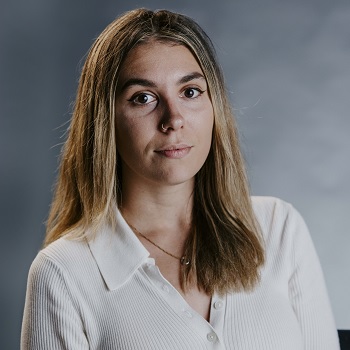
Lewis won the David Jenkins Scholarship for Political Activism for her impactful advocacy of student rights in a political uprising. She used her senior thesis to expand the discussion and analysis of new regime changes, using Serbia as a case study. Off campus, she has organized pop-up events for local artists and fundraisers for nonprofits.
After graduation, Lewis plans to seek a full-time position in San Francisco municipal government and pursue a law degree.
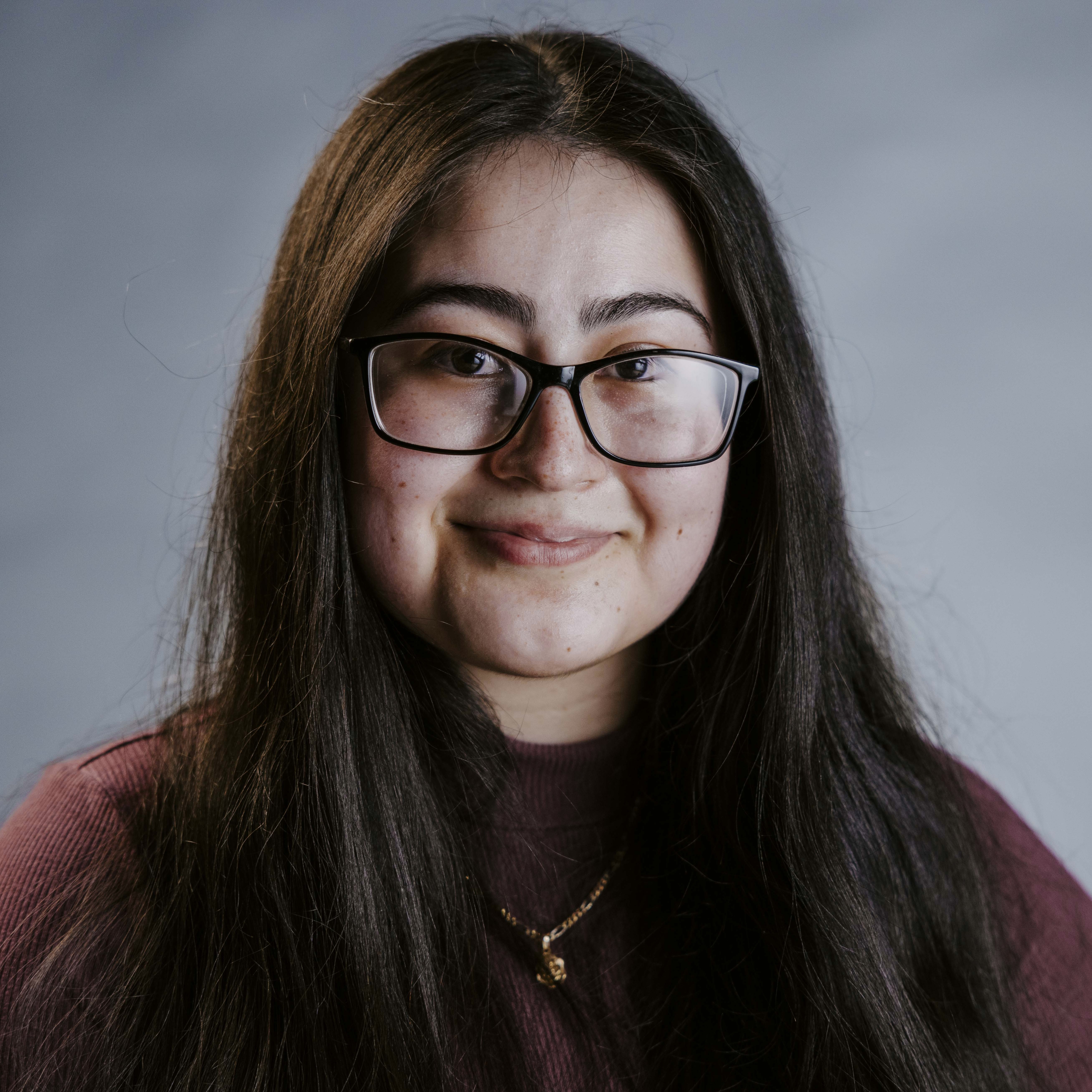
Meliza Matute
B.S., Business Administration (Decision Sciences/Finance)
Lam Family College of Business
Meliza Matute is a first-generation Salvadoran American student. Her parents came to the U.S. with very little money but impressed on her the importance of hard work and education. Those would be the keys to a successful life, they told her. Growing up in East Palo Alto, she became acutely aware of the differences in the level of safety, quality of education and scarcity of resources between her town and its affluent neighbors Menlo Park and Palo Alto. Thanks to a school transfer program, Matute experienced firsthand just how stark the differences were, filling her with a desire for a more equitable world.
Later, Matute moved to Tracy and was committed to attending SF State despite the distance. She traveled six hours a day on public transportation to complete her degree. She started out as a Finance major to increase her financial literacy. By her second year, she decided to also major in Decision Sciences. She graduates with a 3.94 GPA.
Outside of the SF State classroom, Matute spent her time educating young people about decision sciences. She volunteered with incoming high school freshmen, showing them the real-world application of math in business and how companies use math to make business decisions. She also worked as a student instructor/facilitator for the “Operations Management Supplemental Instruction” course, to deepen student understanding of difficult concepts.
Matute’s education and experience at SF State inspired her to choose a career that will benefit the common good. Knowing that one’s strength reflects that of their community, she aspires to use her financial and data analysis skills to better her community.
Loan My Tran
B.A., Mathematics (Mathematics for Teaching)
College of Science & Engineering
Childhood experiences with mathematics, particularly those with her grandfather, made a lasting impact on Loan Tran. Her family emigrated from Vietnam. Growing up, she’d stay with her grandparents while her parents worked. Her grandfather taught her math and made worksheets for her. She’d happily memorize multiplication tables and enjoyed playing strategy games like Connect Four. Surrounded by so much math, she naturally gravitated towards STEM and Mathematics at SF State. In addition to majoring in Mathematics, she completed a minor in Computer Science. She is the first in her family to graduate from college.
Tran conducted original research as an undergraduate even though she initially didn’t know anything about math research. In 2022, she participated in the Mathematical Sciences Research Institute Undergraduate Program. She set out to answer neuroscience-motivated math questions related to discrete math, geometry and computational algebra. For her academic achievements, Tran won the C.Y. Chow Memorial Scholarship, the Pamela Fong Scholarship in Mathematics, the David Meredith and Friends Scholarship and the Halmos Scholarship.
Interested in education, Tran volunteered as a tutor at Mastery Learning Hour and helped students with elementary school to high school-level math. She was also proudly a student assistant in the Department of Mathematics office. In her first “real” job, she enjoyed building relationships with professors and using her problem-solving skills in a new setting. Working there for two years, she even wrote the operations guide for other student assistants.
Next, Tran will pursue a Ph.D. in Mathematics to further explore her field and conduct more research. However, she still has an interest in a possible career as a high school math teacher.
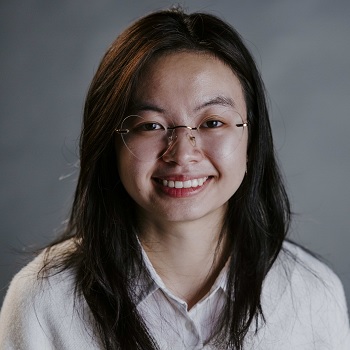
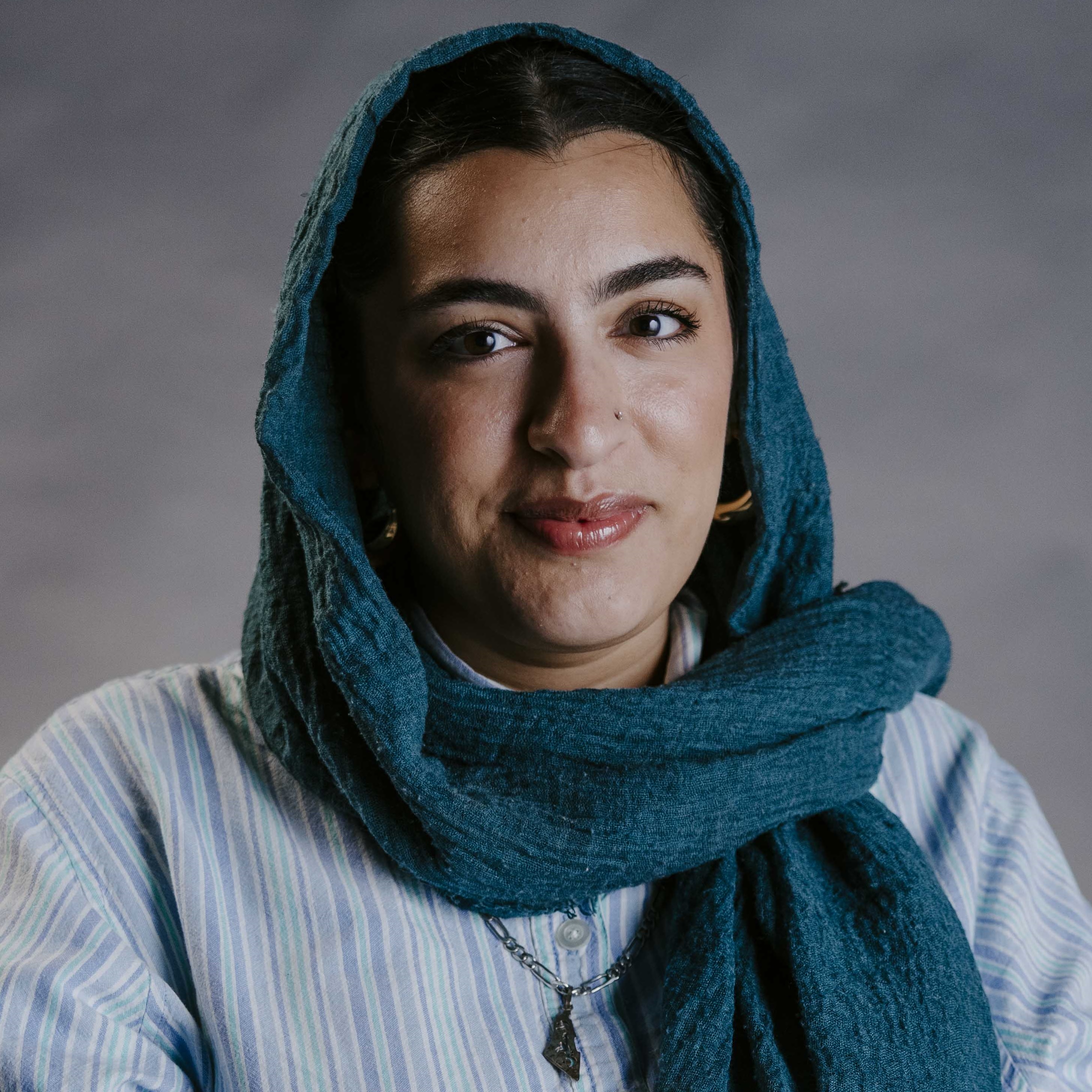
Graduate Hood Recipients
Sabreen Imtair
M.A., Ethnic Studies
College of Ethnic Studies
Sabreen Imtair is a seasoned organizer and a prominent figure in the activist community. Throughout her time at SF State, she has also demonstrated being a dedicated scholar in the College of Ethnic Studies.
For example, Imtair serves as a youth organizer with the Arab Resource and Organizing Center, actively participating in movements such as the K – 12 ethnic studies campaign. Over the past six months, she has also played a pivotal role in organizing, mobilizing and fostering community engagement in support of ceasefire in Palestine.
Hailing from a Palestinian family with Bay Area roots, Imtair is a proud product of the region’s public school system and holds the distinction of being the first in her family to attain a college degree.
Her graduate thesis delves into the intricacies of community mobilization and organization within the Arab and Muslim communities in the Bay Area.
Joanna (Liyi) Huang
M.A., Education (Secondary Education)
Graduate College of Education
Joanna Huang has had a full circle moment: She’s now teaching at the same school district she graduated from.
At age 13, Huang moved from China to San Francisco, graduating from Francisco Middle School and Washington High School, part of the San Francisco Unified School District (SFUSD). That’s where she participated in English Learner programs, finding solidarity and community among immigrants from around the world.
After earning a degree in Managerial Economics with a minor in Education from UC Davis, Huang received her single-subject credential in Math from SF State in 2022.
Huang is now back at SFUSD for a different reason: She’s in her second year of teaching seventh grade at James Denman Middle School. This school has served as the site for her field research study, which looked at math participation among seventh graders. The study was partly inspired by her experience getting her credential at SF State, which allowed her to see that students who do not yet feel confident in mathematics can experience greater engagement, confidence, fun and learning through groupwork.
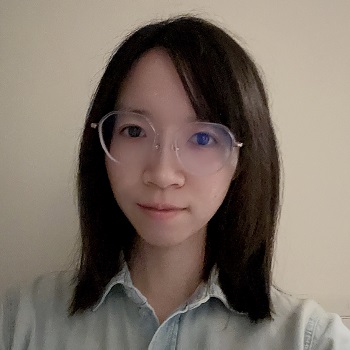
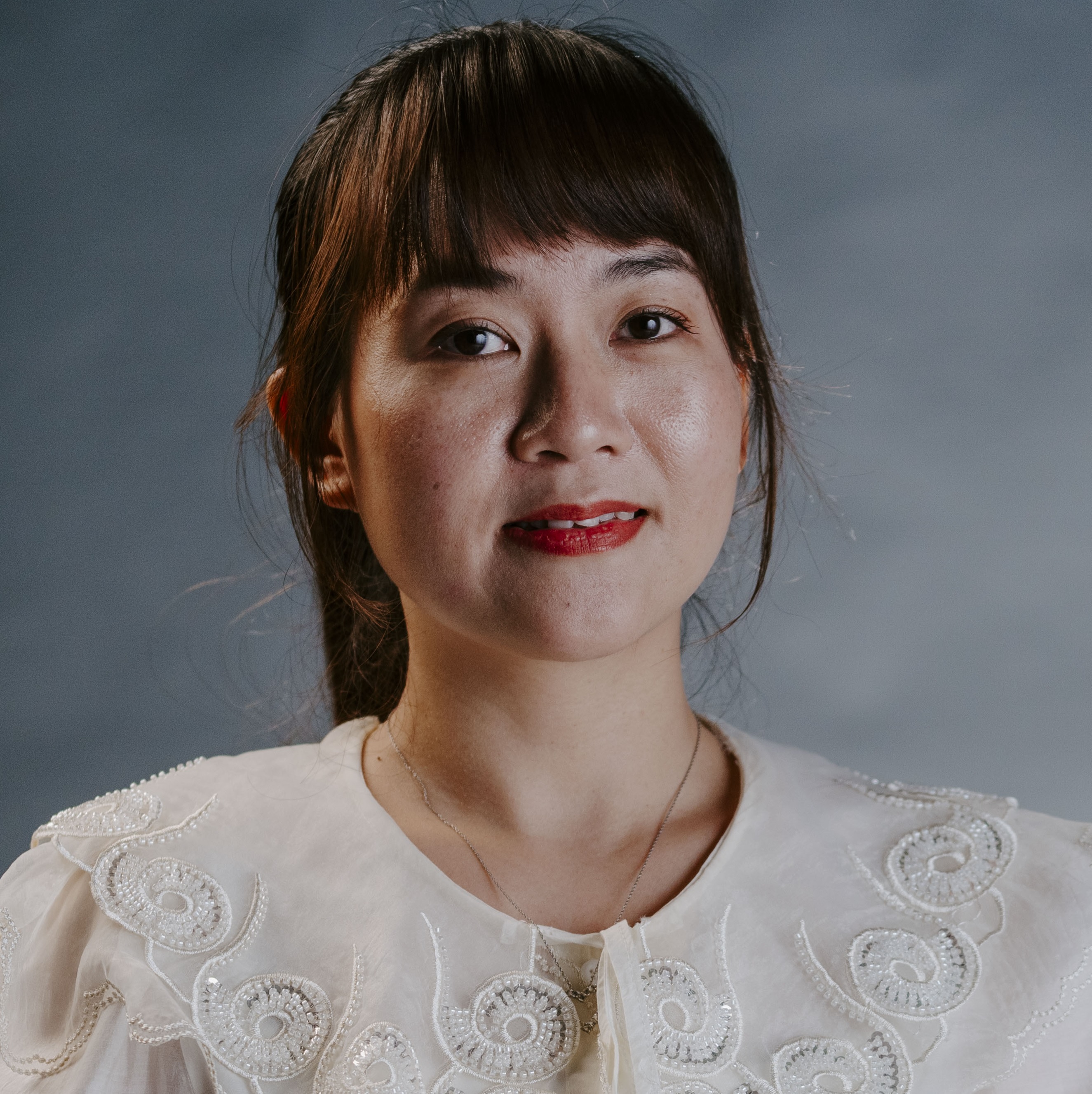
Son Hai Nguyen
MBA
Lam Family College of Business
Son Hai Nguyen earned an undergraduate degree in Economics from the National Economic University in Vietnam and gained extensive experience working in the banking industry as a financial analyst and corporate credit manager. In 2017, she relocated to the Bay Area from Vietnam with her spouse and their two young children. Wanting to continue her education, she enrolled in City College of San Francisco (CCSF) and completed an associate’s degree in Finance while maintaining a 4.0 GPA. She served as a member of CCSF’s Associated Students. Later, she decided to pursue an MBA at SF State.
She is “the top-performing student,” according to one of her professors at SF State. Another said she was “extremely prepared, positive and a cheerleader for her classmates.” Her classmates commented on her dedication to her studies, often studying without pause. Nguyen would often take on more than her share of responsibilities during group projects. She provided feedback to teammates to help ensure that their work was of the highest quality.
Throughout her MBA studies, Nguyen actively participated in various activities. In 2023, she joined the Lam Family College of Business Student Ambassador Program. Almost immediately she became a leader among the other ambassadors. She organized and co-hosted events specifically tailored to graduate students, creating an inclusive community with plenty of opportunities for networking.
Nguyen participated in the Volunteer Income Tax Assistance (VITA) Program at SF State, where she served as an IRS-certified volunteer tax preparer and quality reviewer, assisting individuals with low incomes on their tax returns. Additionally, she was a research/teaching assistant for Management Professor Smita Trivedi and volunteered at the college’s Women’s Emerging Leadership Forum. She has actively supported and engaged in activities of the San Francisco chapter of the Association for Corporate Growth (ACG), fostering connections, collaboration and investment between Vietnamese and American businesses.
Su Ilayada Ozcan
M.S., Chemistry (Biochemistry)
College of Science & Engineering
Su Ozcan wants to develop new treatments without side effects. It’s a passion that stems from her early exposure to her grandfather’s battle with cancer. As an undergraduate in Turkey, she explored innovative therapies and gained two years of professional experience working with pharmaceutical companies. With women being relegated to the background and the value placed on science decreasing in her country, Ozcan decided to leave Turkey and pursue her academic goals in the United States.
As an international student at SF State, Ozcan focused on groundbreaking research in enzymology and medicinal chemistry to develop a novel side effect-free treatment for tuberculosis. She published these discoveries in scientific journals. She demonstrated her commitment to making a positive impact beyond the lab by serving as a teaching associate for two years. Accolades for her academic performance and commitment to science include the Henry Bertin Jr. Scholarship, the Agents of Change Build Merck Scholarship, the Bill Plachy TA (teaching assistant) Award and the CSU Trustees Award.
After SF State, Ozcan’s next step is to begin a Chemistry Ph.D. program at the University of Southern California, where she’s already been offered a graduate fellowship. Looking ahead, Ozcan is excited to continue her quest to develop new therapeutics and treatment strategies that will make an impact. She is eager to translate her academic research into practical applications and hopes to eventually establish a pharmaceutical company. Beyond medicine, she aspires to continue being a teacher and create educational opportunities for underprivileged children. She also hopes to provide financial and moral support for others, especially women in science.
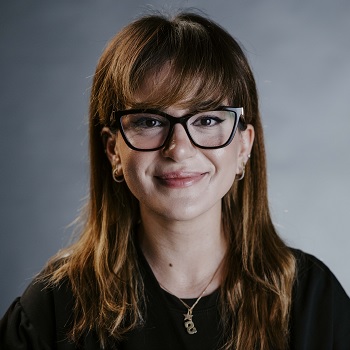
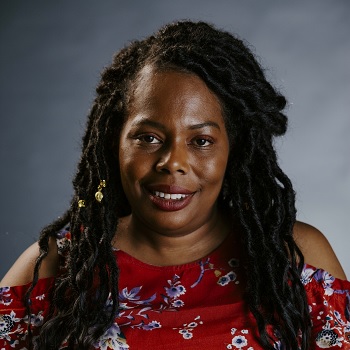
Monique Scott
MPH
College of Health & Social Sciences
Monique Scott decided to pursue a Master of Public Health (MPH) degree at SF State after seeing structural and systemic health disparities affect her community. She began her career as a social worker, caregiver and care coordinator, assisting people navigating governmental and nonprofit assistance programs and managing medical conditions.
During the pandemic, she became a resource navigator and case manager for individuals exposed to COVID-19. Seeing how disparities impacted marginalized residents, she wanted to make a larger impact. She became interested in the social determinants of health and how prevention programs could more effectively help communities.
At SF State, she explored her passion for research with the Health Equity Institute. Her assessment of participation of food establishments in Supplemental Nutrition Assistance Programs (SNAP) in urban university settings significantly influenced a statewide campaign to enhance access to SNAP benefits at CSU campuses.
She also published research on navigating nutrition inequities among pregnant and postpartum mothers and children in BIPOC communities. The Oakland native’s projects also included studies on how urban agriculture can use mutual aid practices and how built environment contributes to the adverse health outcomes of environmental injustices.
While at SF State, she was a Climate Action Fellow, a Graduate Equity Fellow and a President’s Leadership Fellow. She authored, published and presented her research at multiple local and national conferences. She also participated in the University’s Earth Week 2024.
After graduation, she will continue learning and applying her skills in research, writing and coordination to address health equity in the Bay Area. She plans to continue participating in strategies for community and policy-level interventions for marginalized communities of color. She is grateful for the SF State connections that contributed to her accomplishments.
